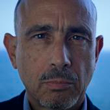- Level Foundation
- Duration 30 hours
- Course by Università degli Studi di Napoli Federico II
- Total students 809 enrolled
-
Offered by

About
An understanding of how political power is organised in our democracies, and what the resulting forms of government structure are, is the main aim of this course, which has a basis in law but, as you will see from the beginning, combines so many different subject areas that it can be termed multi-disciplinary.
The course looks at the way different forms of government are organised, their functional logic and their evolution. Every constitutional order, every political community, has its own form of government and its own political institutions and these can be classified according to type because they are based on very few basic models despite the numerous variants. The course studies the origins of these basic models and the main features of each, taking recent changes into consideration to draw conclusions about the present and the future, within a perspective of a necessary and constant maintenance of the constitution.
During the lessons, learners have the opportunity to study the best of politology and other subjects like institutional and political history and cultural anthropology.
What you will learn
- the different forms of organisation of political power in contemporary society
- the controversial and debated attempts at reform in Italy
- how presidential models work
- how parliamentary models work, their current difficulties and what can be done to improve them
Auto Summary
Explore the intricate world of political structures with "Forms of Government Around the World," a multidisciplinary course offered by edX. Delve into the organization of political power, examining various government forms and their evolution. This foundational 30-hour course combines law, politology, history, and cultural anthropology. Ideal for those interested in personal development, professional subscription options are available. Join to gain a comprehensive understanding of political institutions globally.

Carlo Fusaro


